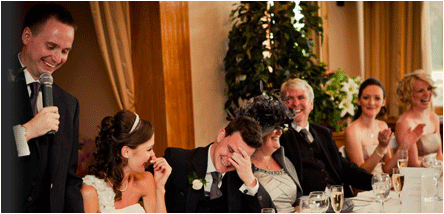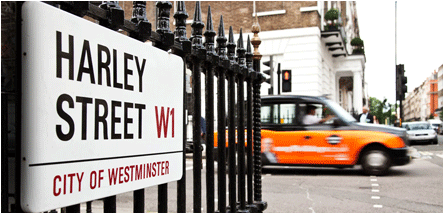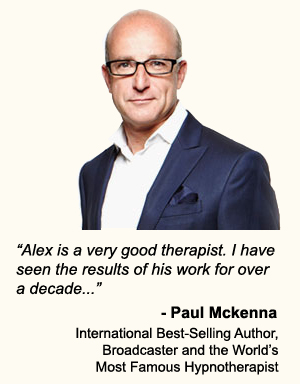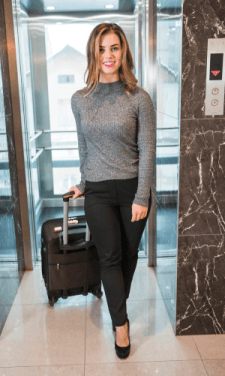IF YOU’RE LOOKING FOR HYPNOSIS FOR BLUSHING you’re probably struggling in social situations.
If this is you then you’ll know how quickly it can get out of control. For many people the thought of going red leads to a vicious cycle of worry and self consciousness which makes it worse.
At The PHOBIAMAN Clinic in Harley Street we know how debilitating blushing can be. Whether it’s speaking in meetings, talking to someone new or even walking into a room that familiar heat rising in your face can leave you feeling vulnerable and embarrassed.
The good news is blushing doesn’t have to control your life. Hypnotherapy for blushing is a highly effective treatment that works with your unconscious mind to break the cycle and help you regain your confidence.
Welcome to the PHOBIAMAN Clinic – London’s Leading Blushing Hypnotherapy Specialists

I’m Alex and I’m the Treatment Director here at The PHOBIAMAN Clinic. As a member of Paul McKenna’s training team I’ve been helping people overcome fears and phobias just like yours for over 20 years.
Here at The Phobiaman Clinic, we’ve developed one of the most effective blushing treatment programmes available anywhere today.
Blushing is not a sign of weakness. It’s an automatic physical response caused by the sympathetic nervous system – your body’s fight or flight response.
But for people suffering from chronic blushing (also called erythrophobia) the fear of blushing itself becomes the problem.
That’s where clinical hypnotherapy can help.
Why Do We Blush?
Blushing occurs when the blood vessels in your face dilate allowing more blood to flow to the skin. This reaction is triggered by emotional stress such as social anxiety or embarrassment.
Evolutionary psychologists believe blushing serves a social purpose. According to an article by Jesse Bering in Scientific American, Why We Blush, it may act as a non verbal signal of honesty or remorse, which is why people who blush are often perceived as more trustworthy and likeable by others.
But for some this natural response leads to a crippling fear of blushing – and even the anticipation of blushing can cause it to happen. This is known as a self fulfilling prophecy and creates a vicious circle of anxiety.
How Hypnosis for Blushing Works
Blushing isn’t something you can control with willpower. In fact trying not to blush or to stop blushing usually backfires. This is because the blushing response is rooted in the subconscious mind – and that’s why hypnotherapy is such an effective treatment.
During a hypnotherapy session we help you enter a deeply relaxed state where your subconscious mind becomes receptive to positive suggestions.
In this state we can gently uncover the root cause of your blushing problem and reframe the limiting beliefs that trigger it.
Our approach helps you:
- Calm the sympathetic nervous system so your body no longer reacts as if you’re under threat.
- Install new patterns of thought to replace negative self conscious thinking with calm and confidence.
- Desensitise your emotional triggers by rehearsing stressful situations in your mind while staying relaxed.
As you practice these techniques your mind learns that the situations which used to cause blushing are safe – and the blushing response fades.
What Happens in a Blushing Hypnotherapy Session?
At The PHOBIAMAN Clinic every hypnotherapy session is tailored to you. Typically you’ll begin by discussing your blushing experiences and any known triggers.
Next your therapist will guide you into a relaxed trance. In this state we use techniques like:
- Guided imagery to help you visualise staying calm in situations that once caused blushing.
- Cognitive reframing to change the meaning your mind gives to blushing.
- Post-hypnotic suggestions so you feel calm and in control when you return to daily life.
You’ll remain fully aware throughout – hypnotherapy isn’t about “losing control”. It’s about teaching your brain and body a new healthier way to respond.
Most people feel noticeably calmer after just a few sessions and many report their blushing problems diminish dramatically.
Why Choose Hypnosis for Blushing?
Here at The PHOBIAMAN Clinic we specialise in phobia treatment – it’s all we do. That means we understand how to help people suffering from blushing anxiety better than generalist therapists.
- Fast results: Many clients see improvements in as little as 2–4 sessions.
- Lasting confidence: Our methods help rewire your subconscious for long term change.
- No exposure therapy: You won’t be forced to face stressful situations until you’re ready.
A recent article in Psychology Today says hypnotherapy is a viable approach for overcoming phobias and anxiety based conditions like fear of blushing.
Self-Help Tips to Manage Blushing
While hypnosis for blushing is the most effective treatment, there are also simple techniques you can use to feel calm in the moment:
- Deep breathing: Slow, diaphragmatic breathing cools the body and activates your parasympathetic system.
- Cooling imagery: Visualise a gentle breeze or cool water washing over your face to lower the heat.
- Shift focus outward: Focus on your surroundings or the conversation rather than your internal sensations.
These will give you temporary relief but if you want lasting confidence hypnotherapy works at the root cause.
Take the First Step Towards Freedom
Imagine walking into a meeting, speaking to someone new or standing in front of an audience without that dreaded flush creeping up your neck.
That’s what hypnosis for blushing can help you achieve.
At The PHOBIAMAN Clinic we’ve helped thousands of people overcome fears just like yours. If you’re ready to break free from the fear of blushing we’re here to help.
📞 Call us on 0207 193 5194 to book your free consultation with one of our friendly hypnotherapists. Let’s see if our treatment programme is right for you.
Or learn more about our approach to social confidence with Hypnotherapy for Public Speaking.







 I’m Alex, Treatment Director at The PHOBIAMAN Clinic and a veteran member of Paul McKenna’s Training Team. Together with my team, I’ve spent over 20 years developing a highly effective form of hypnotherapy for spider phobia that works at the subconscious level—where the fear actually lives.
I’m Alex, Treatment Director at The PHOBIAMAN Clinic and a veteran member of Paul McKenna’s Training Team. Together with my team, I’ve spent over 20 years developing a highly effective form of hypnotherapy for spider phobia that works at the subconscious level—where the fear actually lives. Most people have seen hypnosis in action before – perhaps on stage, in a movie, or even on TV. And while those performances are meant to entertain, they also hint at something very real: the incredible responsiveness of the human mind.
Most people have seen hypnosis in action before – perhaps on stage, in a movie, or even on TV. And while those performances are meant to entertain, they also hint at something very real: the incredible responsiveness of the human mind.
 While clinical hypnotherapy can be used for a range of issues – like anxiety, habits, or chronic pain – it truly shines with phobias. This is especially true when delivered by a phobia specialist. Phobias – whether it’s
While clinical hypnotherapy can be used for a range of issues – like anxiety, habits, or chronic pain – it truly shines with phobias. This is especially true when delivered by a phobia specialist. Phobias – whether it’s  IF YOU’RE LOOKING FOR CLAUSTROPHOBIA HYPNOTHERAPY you’ve probably already tried “facing the fear” and found it doesn’t work.
IF YOU’RE LOOKING FOR CLAUSTROPHOBIA HYPNOTHERAPY you’ve probably already tried “facing the fear” and found it doesn’t work.



 These patterns are the reason a fear of driving often doesn’t respond to the standard therapy protocols used by other therapists.
These patterns are the reason a fear of driving often doesn’t respond to the standard therapy protocols used by other therapists.






